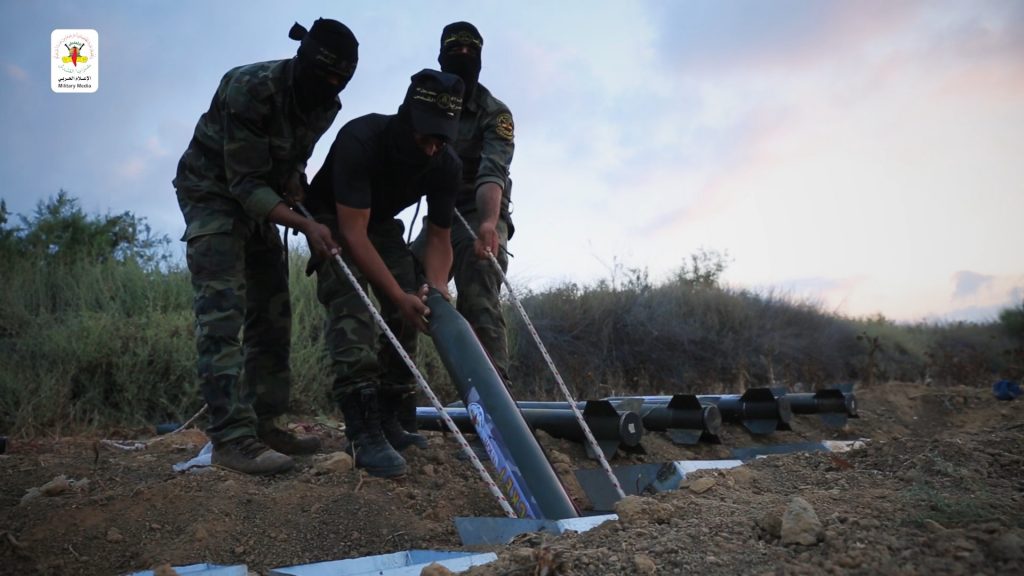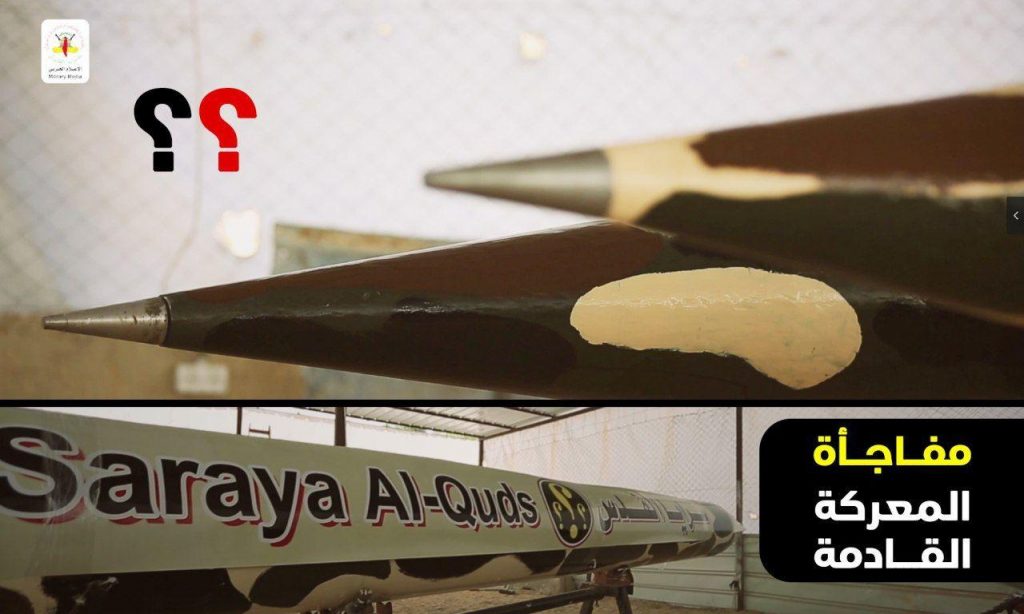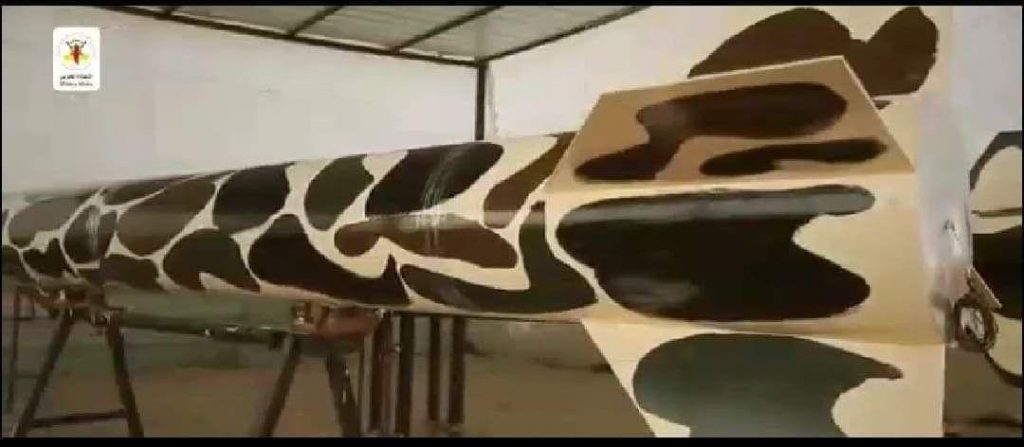On Feb. 23, 2019, Saraya al Quds and other members of the Joint Operations Room (a coalition of Palestinian militant groups) launched operation “Revenge of the Truthful” for what it saw as a “brutal crime” the Israel Defense Forces (IDF) committed against one of its fighters.
A Saraya al Quds fighter is killed and the decision is made to retaliate
The catalyst for the events that led to the start of operation “Revenge of the Truthful” began Sunday morning at the security fence near Abasan al Jadida in the eastern Gaza Strip. Two fighters from Palestinian Islamic Jihad were identified approaching the security fence by IDF observation posts. The fighters were observed planting an IED near the security fence and the IDF reacted by shooting at the cell. One fighter was killed and the other managed to escape.
The IDF sent a bulldozer and a Merkava IV tank into Gaza to retrieve the body of the militant. This is a common IDF practice. The policy behind the act is for the body to be used as a bargaining chip in a future prisoner exchange with Palestinian militant groups.
As the IDF attempted to retrieve the body, some Palestinians interfered with the retrieval by grabbing the body and pulling it further into the Gaza Strip. The IDF shot one of the Palestinians in the leg and in its hurried retrieval, mistreated the body in front of Palestinian news cameras.
Militant groups in the Gaza Strip viewed the treatment of the body of one of their comrades as disrespectful by Israel. Thus the decision was made to launch operation “Revenge of the Truthful.”
Rockets and mortars in southern Israel and IDF airstrikes in Damascus
At approximately 17:30 local time Sunday, a barrage of rockets and mortars were launched by Saraya al Quds towards the southern coastal city of Ashkelon and its surrounding area. The shelling continued through the evening primarily against Israeli cities and towns adjacent to the Gaza Strip.
The IDF retaliated for the attacks by striking Palestinian Islamic Jihad sites in Gaza which included training camps, weapons manufacturing sites, and rocket launchers.
As the rockets from the Gaza Strip continued to be fired into southern Israel, Syrian Arab Army (SAA) air defense units in Damascus attempted to intercept missiles fired by Israeli jets against targets in the capital’s vicinity.
Central Media, a media organization linked to Hezbollah and other Iranian-backed militant groups, claimed that Sunday night’s attack in Damascus was an attempted assassination of Palestinian Islamic Jihad leaders.
There is speculation the target was Akhram al Ajouri, a senior Palestinian Islamic Jihad leader in Syria who survived an assassination attempt attributed to Israel several months ago.
The attempt is thought to have failed to kill any leaders but was successful in killing two Palestinian Islamic Jihad fighters and destroying a research and development site according to an IDF statement.
Through Sunday night and into Monday, militant groups led by Saraya al Quds, continued their rocket fire towards southern Israel as IDF jets struck targets in the Gaza Strip.
At approximately 23:00 local time Monday night, a ceasefire mediated by the United Nations and Egypt went into effect.
“The surprise of the next battle”
In a publication released after the ceasefire went into effect, Saraya al Quds hinted a new type of rocket was in their arsenal.
The photographs of camouflaged rockets bearing the name of the militant group with question marks and the message “The surprise of the next battle” acts as a warning that the group could launch sophisticated rockets that have not been previously used.
What is also important about this development is that it highlights the trend among some of the militant groups in the Gaza Strip that they possess the ability to manufacture rockets locally. This reduces the need to rely on parts smuggled from the Sinai, which has become more difficult in the past decade due to the destruction of many of the smuggling tunnels between Egypt and Gaza by the Egyptian Army.
A clash that could have been avoided
Recent history has shown failed attacks orchestrated by Palestinian militant groups at the Gaza security fence have generally elicited no further response from the groups. They’ve also gone as far as not taking responsibility for the failed attacks despite evidence that their fighters were involved.
Sunday morning’s event would have likely drawn a similar non-response by the factions if the IDF had not mistreated the militant’s body in front of cameras. This act angered many in Gaza forcing the faction to respond to what it saw as a violation by the IDF.
The attack by the IDF in Syria was a change in its military response to attacks from the Gaza Strip. It demonstrates that the IDF has the ability to target militant groups in neighboring countries for hostile acts conducted from Gaza. The change in tactic may also serve as a warning to Gaza’s militant groups who operate abroad such as the PFLP-GC who are active in Syria and Lebanon.
The current ceasefire is temporary
The militant groups in the Gaza Strip headed by Hamas and Palestinian Islamic Jihad are no longer deterred by IDF retaliation for rocket launches into Israel. The assassination of a Palestinian Islamic Jihad commander Baha Abu al Ata in November 2019, has not achieved the deterrence the IDF expected.
The quiet the IDF achieved because of the 2014 Gaza war has been replaced by more powerful and aggressive militant factions who’ve eroded the deterrence achieved in the war.
Evidence of this erosion first manifested when the militant groups in the Gaza Strip took control of the March of Return in early 2018, which at first was a peaceful protest organized by Palestinian activists.
The militant factions used the protests to launch operations against the IDF and Israeli communities along the Gaza security fence.
Unless a deal is struck between Israel and the militant groups in Gaza (Hudna), the current course is likely leading the militant groups and the IDF into another ground war.










